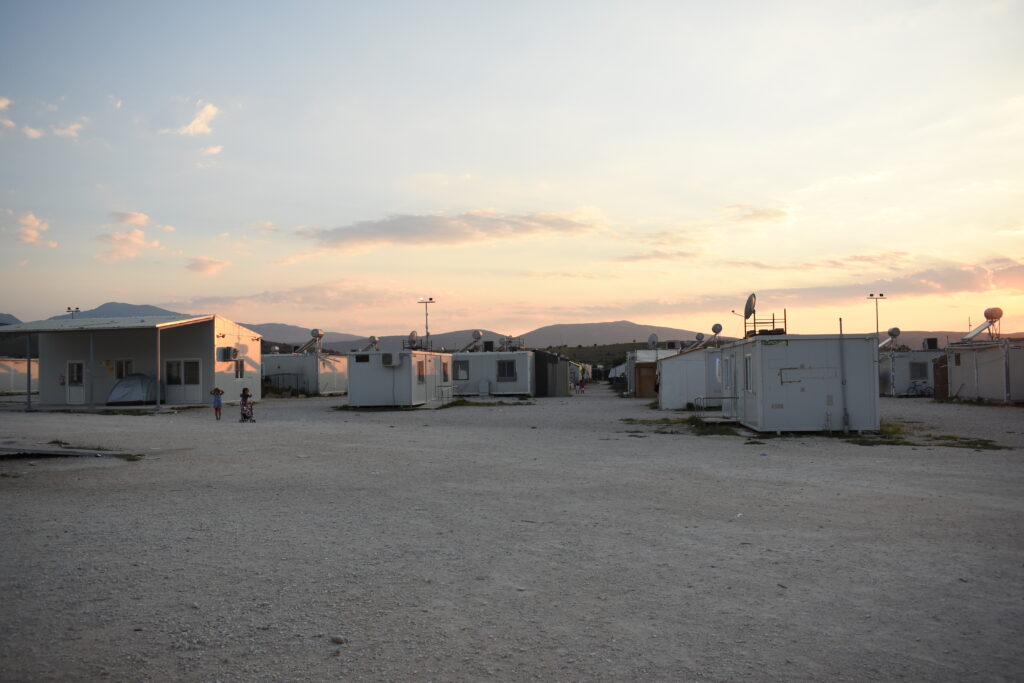Katsikas, May 10th 2021
On April 12th, people living in the refugee camp of Katiskas reported that at least one case of Covid-19 had been confirmed among the residents of the camp. Throughout the same day and the days that followed, information about what implications this had for measures and restrictions on movement kept changing. Local newspapers reported about an “informal quarantine” being implemented. Different men and women we spoke to shared different statements made by the camp management about the restrictions in place.
One of the most clearly communicated, but at the same time most questionable, measures implemented by the camp management is that healthy people are required to quarantine within the same containers as people who have tested positive for Covid-19 and display symptoms. Differently than in other contexts in which people quarantine together (as in the case of family members or flatmates in our societies), the people who live in the containers in camps like Katsikas are in many cases not family members, nor have they had any chance whatsoever to make a choice regarding their living arrangements or who they live with.
Confined in a small space with people who tested positive for Covid-19
In the case of B., who usually comes to our makerspace Habibi.Works to get involved in different workshops and activities, one person in his container had tested positive. The other seven people living in the same container had tested negative, but were confined into the same container for the duration of the quarantine period. The only reassurance that was given to the eight of them was the fact that if the situation got “really bad” the camp management would call an ambulance. Disbelief, frustration and concern were the immediate reactions of the seven healthy residents. While the authorities supplied all of them with food for a couple of days, no masks, hygiene products or disinfectant were provided to the eight persons, who share not only one kitchen but also one bathroom between them.
The case of B. is not an exception but the norm when it comes to the response of the government towards Covid-19 in refugee camps. At the time B. was confined in his container, he reported of at least six other container units in which people were experiencing the same measures as he.
The authorities who place people in the overcrowded setting of a refugee camp have a responsibility to ensure their well-being and of those affected. This responsibility has not been properly assumed – a fact that has been and still is putting people at risk, especially now in times of a pandemic.
Right now, there have been a total of 41 cases confirmed in the camp since April 12th. While the country is easing its lockdown measures, opening bars, restaurants, cafés and cultural centres, the quarantine of camp Katsikas is being extended indefinitely.
A profound change is needed in the EU’s asylum system
We request that the Greek government stops accommodating people in overcrowded, inhumane and excluded camp settings. There is no need for anybody to live in a container or a tent in a country in which the number of empty buildings goes into the thousands. We furthermore request that the Greek authorities find ways to isolate people in the so called “refugee hospitality structures” who have tested positive from others who are healthy, in order to keep persons – who are at the mercy of their arbitrary measures – safe. We request that the EU assumes responsibility as the Union it declares to be and shows solidarity towards people who fled their countries and EU member states who are the first ones in receiving them by implementing practical, sustainable and humane solutions.

